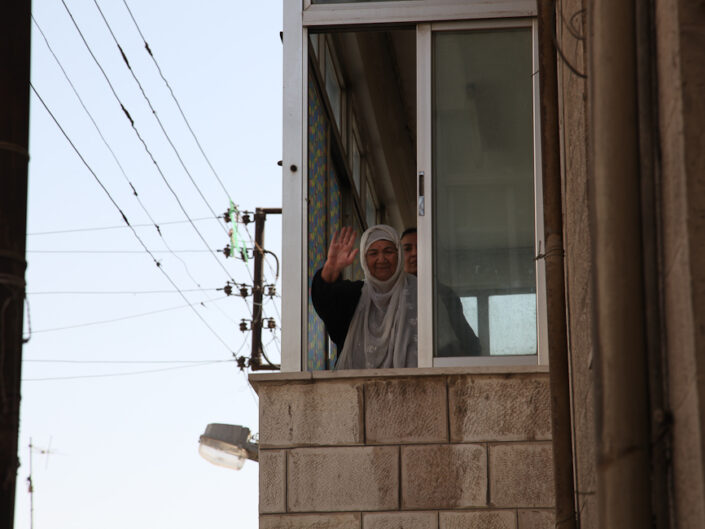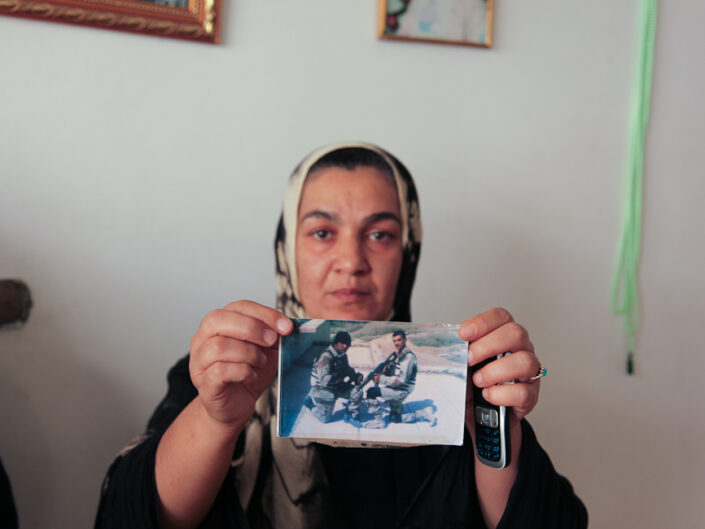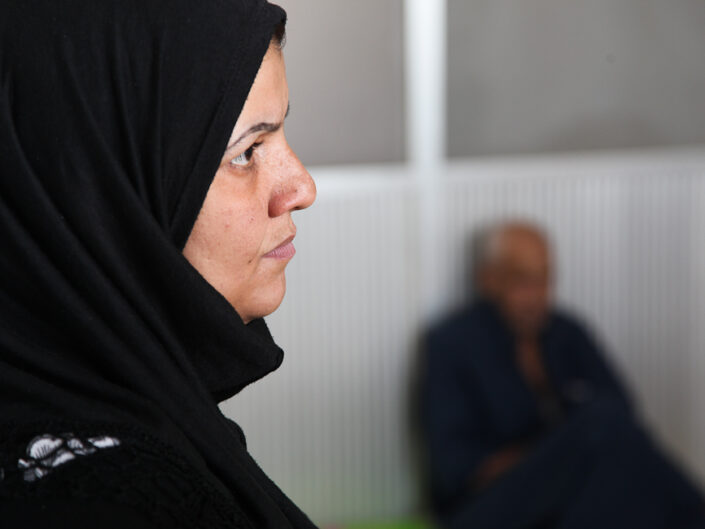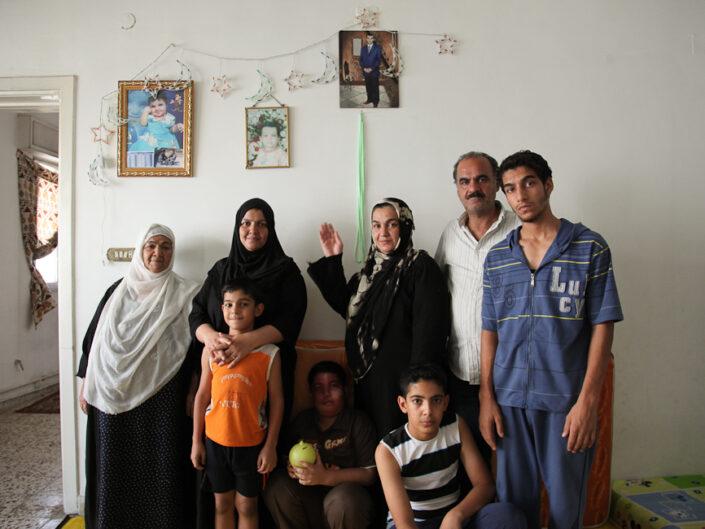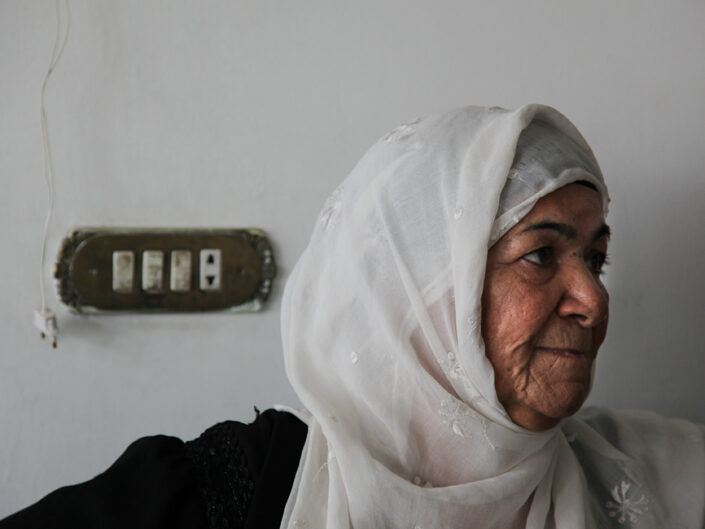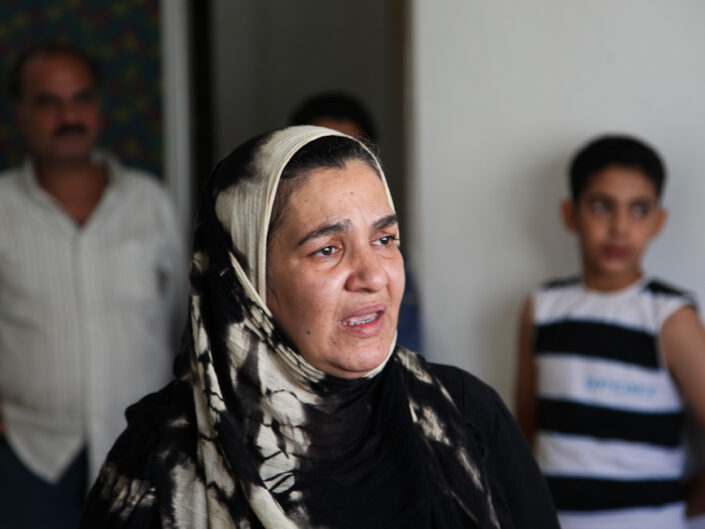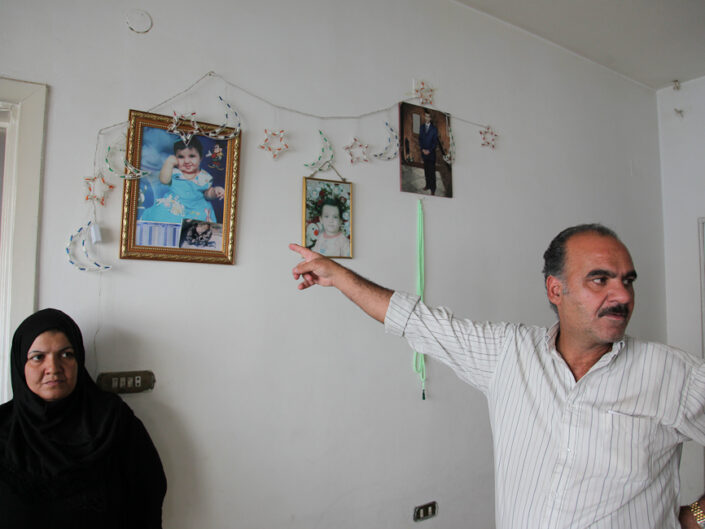ICMC Depression
Nesreen* greets visitors to her apartment in Jabal Hussein with a warm embrace and kisses. She adjusts a lacey black shawl draped over her head and points to a photo of her eldest son, Samer*, hanging high on the wall, a place of honor. A soldier in the Iraqi National Army, he was killed in 2007 by insurgents at the age of 21. Two years later, Nesreen’s husband was killed in a car bomb.
“I didn’t have any way to live, so my neighbor would bring me charity from her church,” Nesreen says. “She encouraged me to leave Iraq because I couldn’t live off of a church forever.”
She moved to Jordan in June with her elderly mother and father and her two remaining sons. Ghaith*, who is 17, is no longer in school and is not working. Nesreen hopes he can start a vocational training program soon. Her youngest son, 11-year-old Amar*, is disabled and has never been to school. Nesreen wishes she could find a program or school for Amar, but she worries that his immune system is too weak to allow him to leave the house.
Nesreen receives 160 JD each month from UNHCR to care for her family, but her rent is 150 JD, and utilities cost an extra 15 JD. To cover her expenses, she relies on cash assistance from her local mosque and food parcels from a nearby church, but it is never quite enough.
“I would like to make friends with the neighbors, but the reason I avoid mixing with the other families is that I don’t have food to serve them if they come for a visit,” she says. “Most days we just eat tea and bread. If someone was to visit us and see us in this situation, I would be very embarrassed.”
Despite her smiles and dynamic storytelling, Nesreen says she suffers from hypertension and depression. She prays for the day when she can be resettled in the U.S.
Text by Laura Ashbaugh / ICMC. Photographs by Andres Morales
